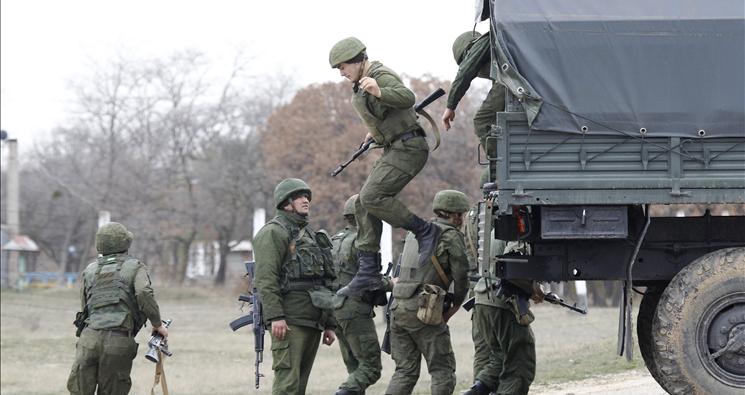It’s Time for Britain to Be Great Again
As Europe stares at the reemergence of classic power politics, I’m struck by the weakness of our European allies. As a matter of history, economic power, and potential military power, it is neither inevitable nor necessary that we take the lead role in dealing with aggression on the European continent. We have become “indispensable” not merely because we are in fact the world’s sole superpower, but also because our allies — with their own multi-trillion dollar economies and populations of tens of millions — have been largely content to rest behind our security perimeter, spending fractions of what we spend on defense while reaping the benefits of our taxpayers’ sacrifice.
While for rather obvious historical reasons I’m not necessarily eager to see Germany flex its muscles, there is no reason why France and especially Great Britain must remain so impotent. France’s GDP of $2.7 trillion and Britain’s of $2.4 trillion are both larger than Russia’s. But this economic power remains largely latent, and their militaries — while relatively advanced — are modestly-sized with minimal power-projection capability. This would all be well and good if we were truly at the “end of history,” but we’re not. Aggressive nations are rarely content with just one or two easy conquests.
Putin’s Russia does not represent anything like the threat of Imperial Germany (World War I), Nazi Germany (World War II), or the Soviet Bloc (Cold War), where American military and economic power were truly indispensable to stop military juggernauts. Yet our allies are so weak that they are less well-equipped (intellectually, culturally, and militarily) to withstand or influence continental aggression than any time in modern history.
There is, unfortunately, no easy fix. After losing more lives in World War II than the United States — and many, many more in World War I — our historic allies have very good reason to fear international conflict and renewed militarization. Moreover, we cannot dictate defense policies to sovereign nations. We should and must try to persuade, and we should and must demonstrate to them that our own security umbrella cannot always be sufficient to protect their national interests nor is it sufficient by itself to protect an international order so carefully constructed to avoid future Great Power clashes. I fear, however, that only the hard lessons of real power will teach our allies that they must once again demonstrate strength of will to resist aggression.
It would be foolish for the West to court armed conflict over Ukraine, but it is similarly foolish for our oldest allies — powerful nations — to choose impotence. History has demonstrated that voluntary weakness is ultimately far more costly than conviction backed by prudently used economic and military strength. Just as Britain and France chose to be weak, they can now choose to be strong.
Whether by wise strategic choice, public and political exhaustion, or sheer recklessness, America will not always take the lead. Why can’t our allies fill the vacuum?

